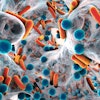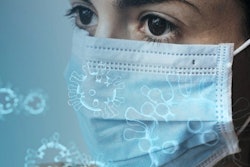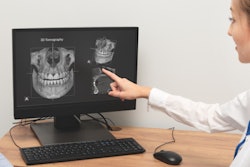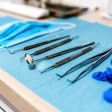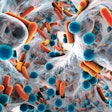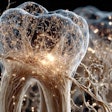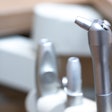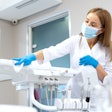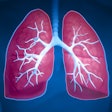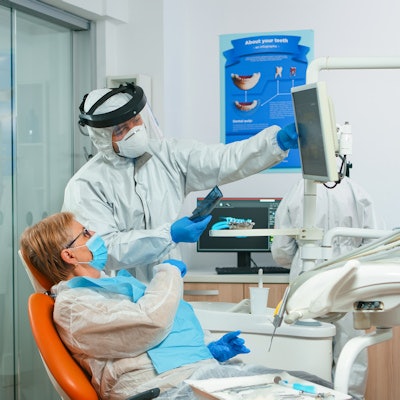
Repositioning face masks with metal nosepieces below patients' mouths may not be enough to prevent artifacts from forming during extraoral imaging, according to a letter to the editor published on January 6 in Academic Radiology.
The aluminum nosepieces can cause artifacts that result in patients needing to undergo repeat dental imaging. Patients should be advised to wear metal-free masks or to modify masks that have metal nosepieces, the authors wrote.
"The use of metal-free face masks may reduce the risk of extraoral radiologic artifact formation within the oral and maxillofacial region," wrote the group, led by Dr. John Brooks, a clinical professor in the department of oncology and diagnostic sciences at the University of Maryland School of Dentistry.
The pandemic has forced dentists to implement infection control strategies to reduce aerosolized viral exposure, including the use of face masks with metal nosepieces that create a tighter fit around the bridge of the nose. For patients, some have suggested that repositioning the mask below the mouth could help prevent imaging artifacts.
However, in letter published in Academic Radiology in September 2021, Fontenele et al explained that extraoral x-rays and cone-beam computed tomography could be obtained in patients wearing masks. The group used anthropomorphic phantoms to illustrate ways to produce quality images while maintaining safety.
In the January 6 letter, Brooks and colleagues provided images of patients who wore masks with metal nosepieces during exams. On imaging, nosepiece artifacts may appear as wavy or smooth V-shaped radiopaque patterns. Other times, the nosepiece may show as bilateral sharp linear structures, they wrote.
A patient's mask repositioned below the mouth can even resemble the appearance of embedded foreign objects, such as broken surgical needles, they noted.
To remedy this, patients should wear metal-free masks or modify masks by removing metal strips and applying tape over the bridge of the nose to enhance mask fit during imaging, Brooks and colleagues concluded.
The "relocation of a face mask during radiologic examination may be insufficient to prevent artifact formation," they wrote.



